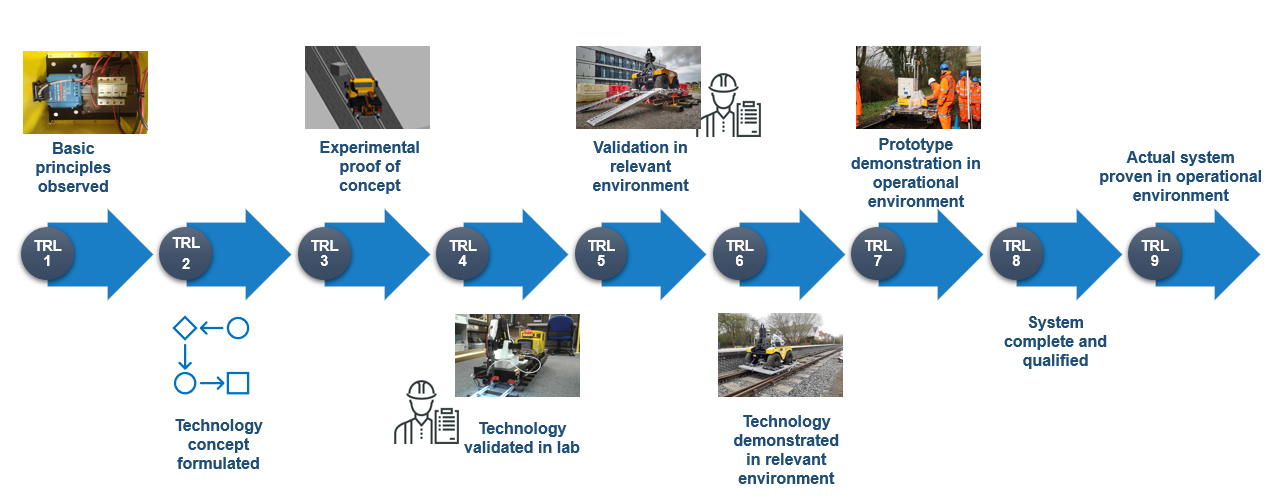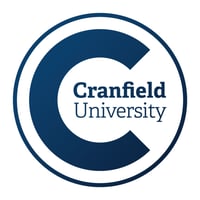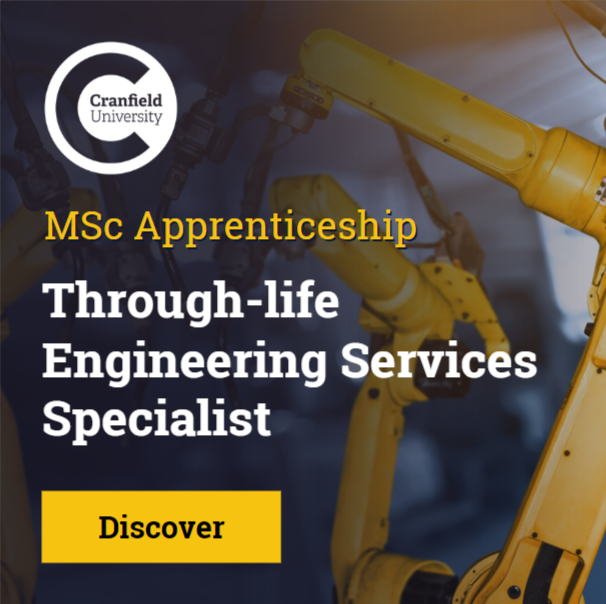
Here at Cranfield University, we are delivering solutions to real-world industrial challenges, often at the highest technology readiness levels (TRLs), meaning we're pushing the boundaries of what's possible.
Undertaking an apprenticeship at an institution like Cranfield, where we are engaged in this sort of research, will allow you to see theoretical concepts applied in a practical way. Our apprenticeship programmes will expose you to innovative technologies, develop your real-world skills, and prepare you for the contemporary challenges of the workplace.
What are technology readiness levels (TRLs)?
Technology readiness levels (TRLs) are a type of measurement system used for estimating the maturity level of technology development. There are nine technology readiness levels (TRLs), ranging from one to 9, with one being the basic principles observed and reported, and 9 the complete system demonstration in its operational environment.
This method of measurement was developed by NASA in the 1970s for developing space exploration technologies and "each TRL represents the evolution of an idea from a thought, perhaps written on a cocktail napkin or the back of an envelope, to the full deployment of a product in the marketplace".

Many national and international organisations now use TRLs for their own project development, as an indication of technology maturity attainment, deployment readiness, or future funding planning. This framework ensures clear communication and collaboration in the exciting world of technological development.
Why choose an apprenticeship at Cranfield?
By choosing an apprenticeship at Cranfield, you'll gain invaluable experience by directly contributing to cutting-edge research projects. This isn't just theoretical learning; you'll be exposed to real-world problem-solving, equipping you with the skills and knowledge needed to thrive in the modern workforce.
Case study: Network Rail
At Cranfield, one of the exciting projects we are currently working on is advanced industrial research conducted on behalf of Network Rail, Britain’s railway infrastructure manager. They have trusted Cranfield’s Centre for Life-cycle Engineering and Management (CLEM) to deliver their vision of autonomous inspection and repair vehicles from TRL three to seven through a strand of projects, including vehicle construction, programming, navigation, obstacle avoidance, security, cyber-security, and signalling.
Over 40 master’s level students and three PhD students have already enriched their education experience and career prospects by working alongside our team of research professionals, academics and railway experts on this project.
Delivering industrial research while developing apprentices’ knowledge, skills, and behaviour
Our MSc/Level L7 apprenticeship in Through-Life Systems Sustainment (TLSS), developed in collaboration with industry leaders, addresses the growing demand for skilled professionals in through-life management, support, asset management, servitisation and/or maintenance. This programmes enables you to optimise the value in-use and cost in-use of long-life high-value engineering assets such as planes, trains, ships, vehicles, power-plants, machine tools, buildings etc.
Apprentices bring both their group and individual research projects from their workplace, and they address current, relevant industrial issues. Recent project titles include:
- A methodology to enable through-life carbon emission assessment and optimisation for defence helicopters (sustainability-defence).
- Cost benefit analysis of life extension and upgrade to HPSS point operating equipment (railways industry).
- Investigation into the feasibility of using forecast and resource planning as a demand and supply balancing model (asset support).
- A framework to optimise cost of time-on-wing management of a legacy aero-engine (obsolescence management).
You will be supervised by industry-active research academics from Cranfield with an established track record in product-service, maintenance systems, and through-life capability management. Project outcomes are well received by our industry sponsors, potentially leading to real-world impact.
Without doubt the L7/MSc apprenticeship in Through-Life Systems Sustainment provided core knowledge but more importantly the capabilities to manage and effectively challenge for the better, many of our processes and sometimes where appropriate, our customersRob Mills-Hicks, Through-life Support Lead, Babcock
At Cranfield, we bridge the gap between theory and practice, ensuring you graduate with the skills and experience to solve the challenges of tomorrow.
Find out more about the Through-life System Sustainment MSc apprenticeship and register your interest today.
For PhD opportunities please contact i.s.durazocardenas@cranfield.ac.uk


